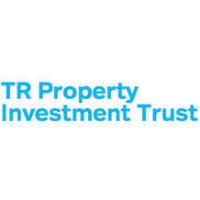TR Property Investment Trust plc (LON:TRY) has announced its financial report for the half year ended 30 September 2021.
Financial Highlights and Performance
“A good set of results in challenging market conditions. A Share Price Total return of over 22% and an increase in the Interim dividend, reflecting our confidence that income will return to pre-pandemic levels over the next 18 months.”
David Watson
Chairman
| At 30 September 2021 | At 31 March 2021 | % Change | |
| Balance Sheet | |||
| Net asset value per share | 474.34p | 417.97p | +13.5 |
| Shareholders’ funds (£’000) | 1,505,318 | 1,326,433 | +13.5 |
| Shares in issue at the end of the period (m) | 317.4 | 317.4 | +0.0 |
| Net debt1,5 | 11.6% | 16.5% | |
| Share Price | |||
| Share price | 470.00p | 392.50p | +19.7 |
| Market capitalisation | £1,492m | £1,246m | +19.7 |
| Half year ended 30 September 2021 | Half year ended September2020 | % Change | |
| Revenue and Dividends | |||
| Revenue earnings per share | 10.31p | 7.65p | +34.8 |
| Interim dividend per share | 5.30p | 5.20p | +1.9 |
| Half year ended 30 September 2021 | Year ended 31 March 2021 | ||
| Performance: Assets and Benchmark | |||
| Net Asset Value total return 2,5 | +15.6% | +20.7% | |
| Benchmark total return | +11.0% | +15.9% | |
| Share price total return 3,5 | +22.1% | +28.3% | |
| Ongoing Charges 4,5 | |||
| Including performance fee | +1.50% | +1.40% | |
| Excluding performance fee | +0.70% | +0.65% | |
| Excluding performance fee and direct property costs | +0.69% | +0.63% |
1. Net debt is the total value of loan notes and loans (including notional exposure to CFDs and in prior year Total Return Swap) less cash as a proportion of net asset value.
2. The NAV Total Return for the year is calculated by reinvesting the dividends in the assets of the Company from the relevant ex-dividend date. Dividends are deemed to be reinvested on the ex-dividend date as this is the protocol used by the Company’s benchmark and other indices.
3. The Share Price Total Return is calculated by reinvesting the dividends in the shares of the Company from the relevant ex-dividend date.
4. Ongoing Charges are calculated in accordance with the AIC methodology. The ratio for 30 September 2021 is based on forecast expenses and charges for the year ending 31 March 2022. The performance fee included in the calculation above is the provision at 30 September 2021 referred to in note 2 rather than an estimate of the fee at the year end.
5. Considered to be an Alternative Performance Measure.
CHAIRMAN’S STATEMENT
INTRODUCTION
For the six months to 30th September, TR Property Investment Trust delivered a healthy NAV total return of 15.6%, 4.6% ahead of the benchmark total return of 11.0%. The share price total return was an impressive 22.1% as the discount to the underlying asset value, which the shares traded at in March, virtually disappeared over the subsequent six months.
The period saw the continuation of the broad post vaccine recovery across all economies. However, the rebound continues to be unequal across the real estate landscape. Legacy issues abound. Office landlords face headwinds from low levels of occupation, particularly in larger cities, whilst retail property continues to lack fresh demand amidst an unrelenting move to online retail fulfilment. There have also been clear winners: the major disruption in supply chains has forced businesses to invest in more storage capability and domestic leisure use has unsurprisingly surged giving hotels and restaurants a badly needed boost.
Our manager continues to focus on sustainable income and has further tilted the portfolio towards index-linked income. When viewed against more popular index linked instruments, REITS with this type of explicit inflation proof income look undervalued.
Our ability to buy (and trade) alternative asset types beyond the traditionally dominant office and retail sectors continues to be a driver of value and differentiation. Our investments in self-storage, private sector residential, logistics and secure income have all performed well.
REVENUE RESULTS AND DIVIDEND
Revenue earnings for the first half are 10.31p per share, over one third ahead of the 7.65p recorded this time last year. The fact that earnings are substantially ahead of the prior year is not surprising since the cuts and suspensions of dividends that we saw in the same period last year have largely reversed (with a couple of notable exceptions). Earnings are also 3.5% ahead of the September 2019 result. Although some companies’ dividends have not yet returned to pre-pandemic levels, changes in the portfolio with the focus on sustained income have compensated for this. There have also been some changes in dividend timetables where some income usually received in the second half has been brought forward.
The Board has announced an increased interim dividend of 5.30p, 1.9% ahead of last year’s interim.
REVENUE OUTLOOK
The timing differences referred to above mean that first half earnings have benefited relative to the second half. As a result, we expect that the proportion of full year income generated in the first half will be significantly ahead of the usual two thirds. In addition, the second half of the prior year benefitted from a substantial tax refund which will not be repeated.
The decision to increase the interim dividend to 5.30p reflects the Board’s confidence that revenue will return to pre- pandemic levels over the next eighteen months.
I would remind shareholders that the Trust aims to outperform its benchmark in total return terms. At some point the stocks delivering reliable income may become overvalued and the potential for superior capital returns in those unloved sectors, which typically have weaker revenue, may become an investment opportunity. Such a rotation could cause the Trust’s revenues to fall, however substantial revenue reserves are still available to protect dividend levels in the short term.
NET DEBT AND CURRENCIES
Gearing at the end of September was 11.6%, lower than that of 16.5% at the end of March 2021. The decision to maintain gearing at this level reflects our manager’s optimism towards large parts, but not all, of the pan European real estate landscape.
European currencies have remained stable over the period. As a reminder, our policy is to maintain a hedged currency exposure in line with the benchmark. Sterling represents around 28% of the benchmark and strengthening Sterling constitutes a headwind to the NAV.
DISCOUNT AND SHARE REPURCHASES
The discount of the share price to the Net Asset Value narrowed over the period from -6.1% at March 31st to -1% at September 30th. The average discount over the six-month period has been -4.4% and the shares have traded in the range of -8.1% to par (nil discount). There were no share repurchases in the half year period.
ENVIRONMENTAL, SOCIAL AND GOVERNANCE FACTORS (‘ESG’)
We continue to make progress seeking the relevant data from companies in our investment universe to enable us to benchmark their performance on key criteria such as Greenhouse Gas Intensity (Scope 1 & 2 Intensity per USD million sales/rent), Energy Intensity (MWh/USD million of sales/rent) and Water Intensity (Consumption of cubic metres/USD million sales). These metrics are included in global data on listed companies provided by MSCI, it already includes a large cohort of our companies and we are confident of coverage expanding. This is the first step in establishing a set of metrics whereby we can measure the improvement of our companies’ performance. As highlighted in the Annual Report, it is crucially important that we don’t penalise those companies who are modernising, at a steady pace, a legacy portfolio of energy inefficient buildings. A good example is the private residential sectors in Germany and Sweden where heavily regulated (and submarket) rental levels haven’t encouraged tenants to improve their accommodation and landlords weren’t incentivised to upgrade. This situation is now improving with heightened tenant awareness and governmental investment alongside private initiatives.
Our governance engagement remains elevated. We benefit from working alongside the BMO Responsible Investment team resulting in a comprehensive review of all voting opportunities. Over the last six months, we have raised concerns with a large number of companies and have then actively engaged with 9 of these on a range of governance issues. The scale of the Trust’s ownership in numerous small and mid-cap stocks ensures that our views are being heard.
OUTLOOK
Inflationary pressures are clearly evident. Whether they are transient or prove a little more permanent is as yet unknown. With so much of our underlying income being index-linked (directly or indirectly) we remain confident that real assets will continue to be part of investors’ armoury in an inflationary environment. Real estate continues to offer a substantial margin over fixed income and as economies reflate there is the opportunity for rental growth where demand outstrips supply.
Our manager continues to focus on those twin drivers of companies with secure index-linked income alongside those exposed to sub-sectors which are experiencing real rental growth.
David Watson
Chairman – TR Property Investment Trust
2 December 2021







































